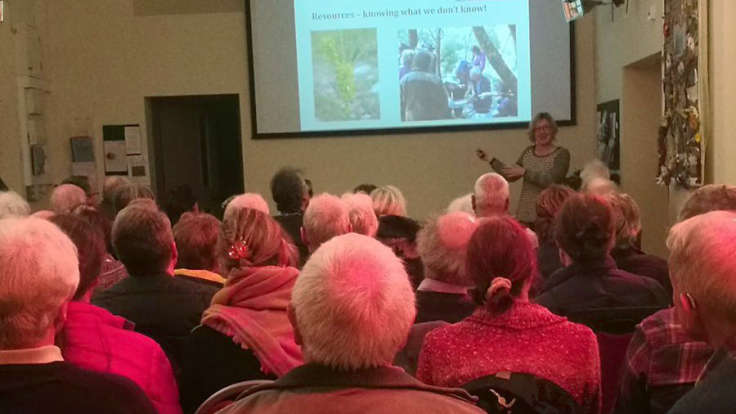
Wild Bees in Pembrokeshire talk with Clare Flynn at Moylegrove Old School Hall, Tue 23 Jan 7.30pm, photo via @wildaboutnature
Wild Bees in Pembrokeshire - an introduction to Species, Diversity and Learning to Record Wildlife with Clare Flynn @wildaboutnature, talk at Moylegrove Old School Hall, Tue 23 Jan 7.30pm
Clare Flynn, County Recorder, @wildaboutnature
Reasons for Biological Recording
- Reliable biological data
- Conservation - knowing what is there
- Monitoring populations
- Planning land use
- Provides data for academic research
3 paths:
- County recorders
- Local Records Centres LERC
- National recording schemes eg MCS
- West Wales Biodiversity Information Centre, WWBIC, Whitland
- National Plant Monitoring Scheme
- Bees, Wasps & Ants Recording Centre
Biological record
- Who: recorder - full details
- What: species - backup ID with photo
- Where: location - 6 figure grid reference
- When: date - time stamp
our farmland is not biodiverse at all
Are there specific plants that help with biodiversity? Trees. Species?
Question: what are the most beneficial species for biodiversity? Do they have to be native?
Bees
I did a four day course on bumblebees and I was hooked
World:
- 25,000 species solitary bee
- 250 species bumblebee
- 7 species honey bee
UK:
- 243 species solitary bee
- 25 species bumblebee
- 1 species honey bee
Willow and dandelions for early bees.
Photo via @wildaboutnature tweet: https://mobile.twitter.com/wildaboutnature/status/956127645003124736